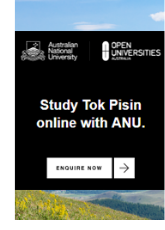Before low-risk Australians get the jab, Australia must provide Papua New Guinea and its Pacific neighbours vaccines so that their front-line health workers can safely do their jobs, Jennifer Tierney writes.
Papua New Guinea (PNG) is at a tipping point. With local reports confirming COVID-19 cases are climbing rapidly, with infections spreading amongst healthcare workers, and with a frighteningly large portion of tests reporting positive in Port Moresby, the Pacific nation could move into an uncontrollable outbreak.
While the Australian Government has pledged some assistance – by sending an assessment team and allocating some emergency COVID-19 vaccines – this is too little, too late to meet the scale and speed of the crisis.
Timing is everything in controlling outbreaks. Without an urgent shipment of at least 30,000 doses of COVID-19 vaccines for healthcare and frontline workers and additional diagnostic capacity, PNG’s already fragile health system is facing an unprecedented threat.
Médecins Sans Frontières/Doctors Without Borders (MSF) has been working in PNG for nearly seven years providing screening, diagnosis and treatment for tuberculosis. Its teams have also provided support with COVID-19 testing and diagnostic supplies.
MSF medical teams recently confirmed that the COVID-19 situation is likely much worse than what is being reported because there is an extreme shortage of testing cartridges – a critical part of the emergency response.
Without Australian help, COVID-19 vaccines will not arrive in PNG until mid-April through COVAX – a World Health Organization (WHO) initiative aimed at distributing vaccines globally and equitably.
But with vaccination rollouts already well underway in countries like Australia, the United States, and the United Kingdom, why has PNG been left behind?
One reason lies in the inequitable distribution of COVID-19 vaccines driven by hoarding of scarce supply by high-income countries. Wealthy countries pre-purchased COVID-19 vaccines directly from pharmaceutical companies – these countries are expected to reach 20 per cent vaccination coverage into the second quarter of 2021.
While many of these countries have high incidence rates and are in dire need of the vaccine, they have secured more than they need to vaccinate their populations multiple times over. In stark contrast, countries receiving vaccines through COVAX will reach just over three per cent of vaccine coverage over the same time. This includes PNG.
The WHO’s Director-General has warned that this inequity means “the world is on the brink of a catastrophic moral failure”. Pharmaceutical companies hold a strong monopoly over the production of vaccines and other medical tools due to patent and intellectual property laws, and this must be challenged.
Right now, there is an opportunity for global scale-up of these essential medical tools.
Last year, India and South Africa put forward a proposal to the World Trade Organization (WTO) calling for a temporary intellectual property waiver to be implemented on all COVID-19 related medical tools until global herd immunity is achieved.
This would allow for rapid and mass manufacturing of therapeutics, diagnostics, personal protective equipment, and vaccines, which are all critical to ending the global pandemic. This proposal is backed by more than 100 countries.
Australia might seem like the kind of country that would do everything in its power to end this global pandemic by supporting this game-changing proposal. But instead, Australia and 10 other nations continue to block this temporary waiver.
Their primary concerns are that intellectual property rights provide financial incentives for pharmaceutical companies to produce innovative products, and without that incentive, they argue, we would not get the medicines we need.
This argument is flawed. In the case of COVID-19, vaccines have been developed at record-breaking speed thanks in great part to the investment of billions of dollars of public money, not the innovation of private companies looking to make a profit.
Regardless, surely the moral imperative to save lives overrides the financial interests of pharmaceutical companies during a global pandemic.
International health organisations including MSF and the WHO have all supported the waiver proposal. This temporary waiver would allow governments and companies to freely collaborate to produce and supply more COVID-19 medical tools and harness unused capacity in developing countries to manufacture more affordable drugs, tests, and vaccines.
COVID-19 is new, but the unfair and inequitable access to medicine issues of today are not. Despite being in an unprecedented situation, pharmaceutical corporations are carrying on with business-as-usual approaches.
Time and time again, MSF has seen low- and middle-income countries left at the back of the queue for life-saving medical innovations — whether it is the pneumonia or human papillomavirus vaccine, or now the COVID-19 vaccine.
S o where does that leave PNG, and many other countries around the world? Without the tools they need for testing, treatment, and prevention of COVID-19.
o where does that leave PNG, and many other countries around the world? Without the tools they need for testing, treatment, and prevention of COVID-19.
The Australian Government should make haste on its pledge to provide PNG and its Pacific neighbours with vaccinations so that healthcare workers are vaccinated before low-risk people in Australia as per the WHO’s global equal allocation framework. It should also increase and accelerate the resources it is already providing for testing.
Finally, while a patent waiver may come too late for this latest outbreak, it might save the lives of others. The ball is in Australia’s court, and if it wants to be taken seriously as a regional leader, it must support the temporary patent waiver and help end this global pandemic sooner, for all.
With The New Normal: In Focus section, Policy Forum is rebooting our coronavirus pandemic coverage to address the changing situation. We hope you find the discussion valuable, and invite you to join in the conversation.





 How is Papua New Guinea responding to COVID-19?
How is Papua New Guinea responding to COVID-19?
 From vaccine nationalism to vaccine diplomacy
From vaccine nationalism to vaccine diplomacy
Thanks for this helpful and insightful blog post.
Amanda